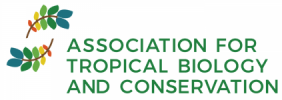First Meeting, Morelia 2007

Discussions during the Asia chapter meeting of ATBC in Mahabalipuram, India in 2007 perceived the need of having a network of women in tropical biology. At the annual meeting in Morelia, ATBC hosted its first Women in Tropical Biology forum. The text below is adapted from the report published page 3 of Tropinet #18 September 2007).
Over 50 participants discussed ways to foster participation of women in tropical research and throughout the ranks of different science career tracks at a lunchtime discussion hosted by Meg Lowman (USA), Priya Davidar (India), Patricia Morellato (Brazil), Pierre-Michel Forget (France), and Julie Denslow (USA). (Photo : Julie Denslow & Meg Lowman. © ATBC Morelia 2007)
At the Morelia meeting, each panel member touched on some relevant data about women in science. Meg Lowman summarized two recent surveys, Profiles in Ecology, and Women and Minorities in Ecology II, conducted by the Ecological Society of America. Both cited disparities in women’s salaries and leadership roles, despite the burgeoning number of women PhD graduates in ecology. These surveys indicated that many women and minorities continue to either disappear or fall behind in academic career tracks. Patricia Morellato spoke about similar trends in Brazil, with women presenting an equal ratio as PhD graduates but falling to less than 5% when considering top leadership positions. Priya Davidar spoke from her perspective in India, explaining that — similar to USA — increasing numbers of women were receiving PhDs but it is a relatively recent trend so there has not been enough time to ascertain if they will rise to leadership positions in science. Julie Denslow and Pierre-Michel Forget spoke about the history of women in leadership roles at ATBC, including the lack of parity in the Editorial Board, Program Chairs, Presidents and Fellow awards. The percentage manuscripts accepted for publication in Biotropica that are first authored by women (33.8%; 2002-2007) is close to the number submitted for publication (30.5%) and this is the same percentage of women serving on Council and as Managing Editors of Biotropica during this time. However between 2003 and 2007 the average percentage of women on the Editorial Board was only 24%. President-elect Forget has pledged to work hard for equity in the leadership of ATBC during his presidency next year.
Participants discussed ways to foster the participation of women in tropical biology. Ideas included:
- Offering childcare at future symposia;
- Working to create parity on the editorial board (but trying not to over-work those relatively fewer women currently in leadership positions.);
- There is no easy solution, but the notion of engaging junior editors was suggested, perhaps giving younger women biologists more visibility among peers as well as training in the publication process;
- Short courses at annual meetings on issues such as job negotiation, juggling family and work, and grant-writing for women and minorities who may not have had mentors to offer this information;
- Encouraging more invited women speakers at symposia. (Note: The Morelia meeting had a very diverse set of symposium speakers!);
- Women nominating women for prizes and honors;
- Funding technicians for women during child-bearing years to retain a competitive edge in research and publications.
Members should send any ideas for further discussion about encouraging women in science to Meg Lowman. Julie Denslow will investigate ATBC obtaining an NSF grant to conduct a current profile of tropical biologists as a platform for initiating next-steps to insure equality. The group hopes to convene next year, and offer mentoring, advice and discussion for women in tropical biology. (Men are also welcome to attend!)
